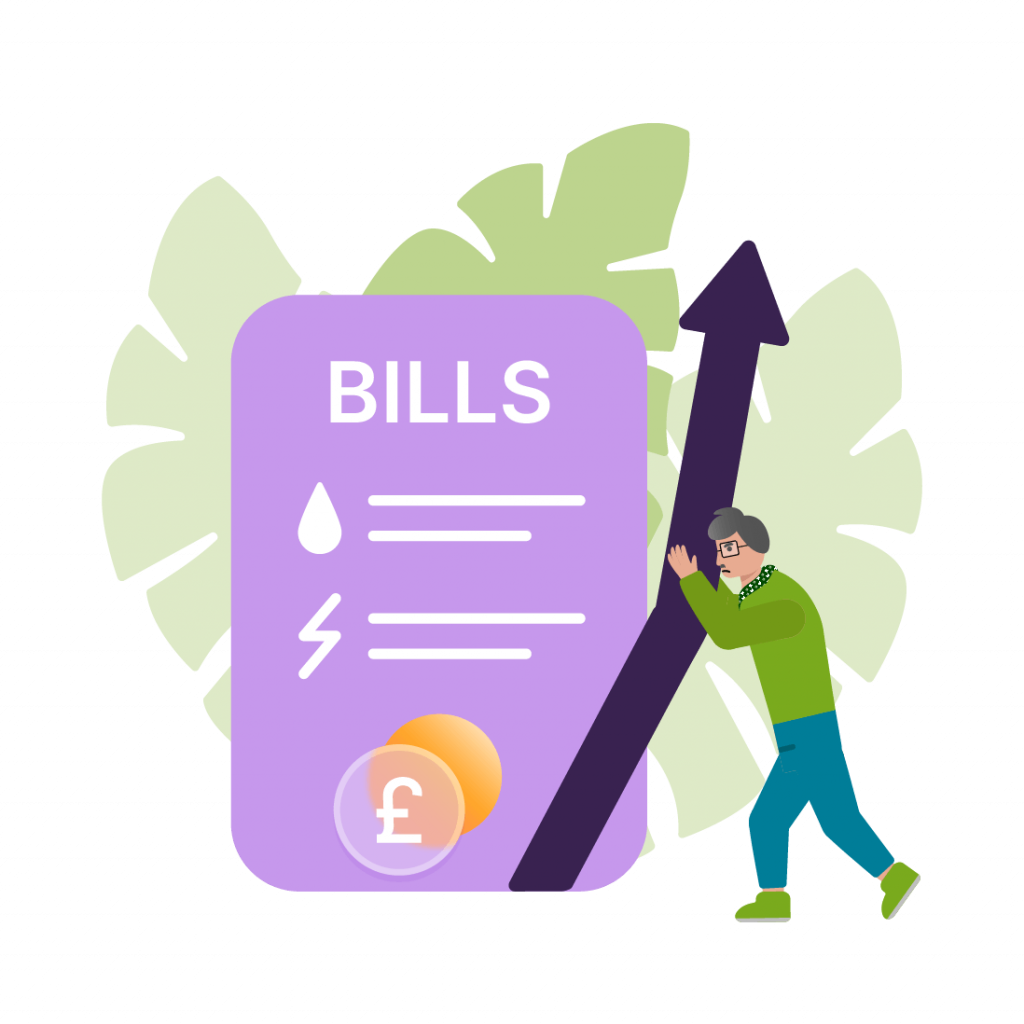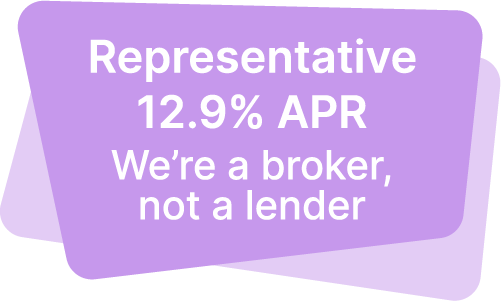
What does the Government’s Energy Price Guarantee Mean for the UK?
The Government's Energy Price Guarantee could be a lifeline to many this winter. Read our new blog post to see how you could benefit.
In this article, we'll cover:
- Is there new hope for the winter ahead?
- But what is the energy price cap?
- The energy prices have been rising so fast that the government had no choice but to act
- How do you get support?
- What is the PM’s long-term plan to tackle the energy crisis?
- Some may still struggle to pay. What should they do?
- We may be able to help you
On the 26th of August 2022, Ofgem announced that the energy price cap for the average household will increase to £3,549 per year from 1st October 2022. This could’ve spelt disaster for many across the UK, as a new analysis from Citizens Advice revealed that 1 in 4 people won’t be able to afford to pay their energy bills based on current forecasts.
However, on the 8th of September, the Prime Minister announced a new Energy Price Guarantee, which will cap the average household’s expenditure on energy bills at £2,500 per year.
Is there new hope for the winter ahead?
From October 1st, 2022, Ofgem previously announced that the energy price cap will increase to £3549 per year for an average household in the UK and was predicted to rise again to £4,650 in April 2023, according to Cornwall Insight.
However, a new hope has arrived in the form of the government’s Energy Price Guarantee, which sees the energy price per year for the average household capped at £2500. This new cap will last for two years and begins on the 1st of October. This means that the average household will save at least £1,000 per year based on current energy prices from October. The current rate is £1971 per year, so you will still be paying 27% more in October on a variable tariff, but it will be nowhere near as bad as the 80% rise which Ofgem previously confirmed.
This could help massively to keep vulnerable groups out of fuel poverty this winter. The NHS has explained that fuel poverty increases the risk of health problems in all age groups, and they spend £1.3 billion a year treating illnesses caused by cold homes.
Older adults are particularly vulnerable to cold environments as it is more difficult for them to regulate their body temperature. Cold-related deaths are the biggest weather-related loss of life in England, with 35,000 excess deaths every winter, and this sad statistic is due mainly to pensioners with no heating in their homes. Therefore, the Energy Price Guarantee is a lifeline to pensioners who wouldn’t have been able to afford the predicted energy price cap.
But what is the energy price cap?
The UK’s energy regulator Ofgem is responsible for the energy price cap. It can be understood as a default tariff cap that limits what suppliers can charge customers for a unit of energy. Each year in February, Ofgem will announce the price cap for April to September, and in August, it will announce the cap for October to March. Although the Energy Price Guarantee will now fix the cap at £2,500 for two years.
The energy prices have been rising so fast that the government had no choice but to act
The current rise of the energy price cap in the UK can be attributed to the unpredictable political and economic climate of recent years. It began when the economy opened again after the lockdown following the Covid-19 pandemic. With everyone returning to work, this sparked an increase in the country’s energy use, so prices were driven up.
The war in Ukraine has also affected gas prices all over Europe. As a result, a large chunk of Europe’s gas supply sourced from Russia has been cut off, increasing the wholesale price massively. Here in the UK, we’re still feeling the brunt of the pricing impact in Europe, although we don’t source much gas directly from Russia.
Prices have been rising so rapidly since 2021 that it has caused many UK energy suppliers to go bust. Ofgem dealt with this by allocating a Supplier of Last Resort to people whose supplier had collapsed. These suppliers are now trying to recover the costs they faced due to the influx of new customers at such short notice.
So, Ofgem made the decision that the £280million bill was to be passed onto customers in the form of higher tariffs. This was done to ensure the remainder of energy suppliers could stay in business. However, according to the Energy Price Guarantee, the government will now be paying the excess to avoid a crisis for consumers.
How do you get support?
There’s no need for you to contact your energy supplier or apply for the guarantee anywhere online. For customers in England, Scotland and Wales, the Energy Price Guarantee will be applied when your bill is calculated.
Most people, regardless of the situation, will be able to benefit from the scheme. Even people who are not connected to the grid will be able to receive comparable support through a discretionary fund.
Previously planned support will also still be available. The Government’s Energy Bills Support Scheme states that all households in the UK will be given a one-off £400 discount on their energy bills, beginning in October, being paid over six instalments. This support is vital as it will help people afford to heat their homes over the winter months.
Further assistance will also be provided for the most vulnerable groups in society. 8 million low-income households will be paid a £650 Cost of Living Payment if they receive benefits. In addition, £300 will be given to pensioner households and £150 to people with a disability.
What is the PM’s long-term plan to tackle the energy crisis?
The new Prime Minister has clarified that she plans to tackle the energy crisis and create a more affordable system in the long run. The government now wants to grow the UK’s supply of energy at home by lifting the ban on fracking to extract gas and oil, which could be considered controversial as it comes with environmental impacts.
However, the PM’s goal is to be a net energy exporter by 2040 through not only fracking but renewable and nuclear energy. The deployment of renewable energy within the UK helps to increase the security of our supply in comparison to relying on fossil fuels imported from other countries. Therefore, we must continue in this direction.
Some may still struggle to pay. What should they do?
Some energy suppliers offer grants to customers who have fallen into debt with their energy bills. These include big names such as EDF, British Gas and Octopus Energy. There may also be grants or schemes run by your local council, which you can check online on the government website.
Alternatively, you could agree on a payment plan with your supplier, so you’ll pay fixed amounts over a set period. Your supplier must consider how much you can afford to pay and ensure it is realistic for you. If you are still struggling, you could try to negotiate a better deal.
You could also pay off your debts through the Fuel Direct Scheme if you're on benefits. This means that a fixed amount will be automatically taken from your benefits to cover what you owe. Older people who get Pension Credit can also use this scheme.
If none of these options works for you and you find yourself in debt, a solution such as a consolidation loan, Debt Management Plan (DMP), or Individual Voluntary Arrangement (IVA), could be a possibility.

We may be able to help you
A consolidation loan could be a great solution if you’ve found yourself in debt. At Consolidation Express, our loans cover utility bill arrears, among other unsecured debts. We are a broker, not a lender.
Fill in our simple online application today.
Apply now
Representative Example: Borrowing £7,500 over 60 months, repaying £167.57 per month, total repayable £10,054.20.
Total cost of credit £2,554.20.
Interest rate 12.9% (variable).
The lenders on our panel offer loans for 12-120 months, with rates from 4.4% APR to 49.9% APR.


